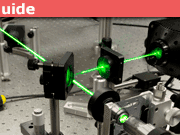How to Publish in a Physics Journal (Addendum)
/4 Comments/in Education Guides/by ZapperZFull Chapter List - So You Want To Be A Physicist... Series
Part I: Early Physics Education in High schools
Part II: Surviving the First Year of College
Part III: Mathematical Preparations
Part IV: The Life of a Physics Major
Part V: Applying for Graduate School
Part VI: What to Expect from Graduate School Before You Get There
Part VII: The US Graduate School System
Part VIII: Alternative Careers for a Physics Grad
Part VIIIa: Entering Physics Graduate School From Another Major
Part IX: First years of Graduate School from Being a TA to the Graduate Exams
Part X: Choosing a Research area and an advisor
Part XI: Initiating Research Work
Part XII: Research work and The Lab Book
Part XIII: Publishing in a Physics Journal
Part XIV: Oral Presentations
Part XIII: Publishing in a Physics Journal (Addendum)
Part XIV: Oral Presentations – Addendum
Part XV – Writing Your Doctoral Thesis/Desertation
Part XVI – Your Thesis Defense
Part XVII – Getting a Job!
Part XVIII – Postdoctoral Position
Part XIX – Your Curriculum Vitae
When I first wrote this part of the series, I wasn’t quite sure if I should include this. for most people submitting to most of the physics journals, this isn’t an issue. But considering the number of very bright students, we have on here, inevitably some of you might consider submitting a manuscript to Nature or Science. When you do that, then you will start learning the meaning of the word “embargo”.
First, a bit of background. Many people are familiar with the electronic e-print ArXiv repository. Many scientists upload their preprints there almost at the same time they submitted their manuscripts to a journal. It is also a common practice that scientists discuss their work either via presenting it in a talk at a seminar or conference, or by putting it up somewhere on a webpage.
Most journals have a “first right of publication” policy. This means that the work being published must not have appeared anywhere else. Additionally, Nature and Science have an embargo policy. To many people, this policy means that submitted work to Science or Nature cannot be distributed or discussed in any form or means, including uploading it onto an e-print server. Such distribution will cause an automatic disqualification from being considered for publication.
Having gone through the process of submitting to Science and Nature, I have a bit of first-hand experience in dealing with this. I have also talked to one of Nature’s editors regarding such a policy and obtained a more definite clarification on this.
First of all, this is what you can find on Nature’s webpage regarding their embargo policy (this is only a part of what you can find there):
“Nature does not wish to hinder communication between scientists. For that reason, different embargo guidelines apply to work that has been discussed at a conference or displayed on a preprint server and picked up by the media as a result. (Neither conference presentations nor posting on recognized preprint servers constitute prior publication.)
Our guidelines for authors and potential authors in such circumstances are clear-cut in principle: communicate with other researchers as much as you wish, but do not encourage premature publication by a discussion with the press (beyond a formal presentation, if at a conference).”
http://www.nature.com/nature/authors…y/embargo.html
What this means is that there are no restrictions in scientific discussions of a submitted manuscript. This includes a scientific presentation at conferences, uploading the manuscript on ArXiv, etc. What is not allowed is a discussion with the media or journalists until 1-week before the publication of the work. However, and this is something that the Nature editor told me, if during your scientific discussion or presentation, another media decided to use it and report it, then you have inadvertently violated the embargo policy, and Nature has the right to refuse publication. This has happened before, and I have seen other media reporting on an ArXiv paper that hasn’t been published yet. If that paper was meant for Nature or Science, such reporting would have disqualified that paper.
So for many people, if they have submitted to Nature or Science, they tend to wait before uploading the manuscript on ArXiv or even presenting a partial result at a scientific conference. While violation of the embargo policy resulting in disqualification is rather rare, many people tend to take the more cautious route and wait a month or two before reporting the complete work.
PhD Physics
Accelerator physics, photocathodes, field-enhancement. tunneling spectroscopy, superconductivity








Very useful information – I had not realized that one would be accidentally violating the embargo if the press reported on a conference presentation!
Nice work Zz
The ATLAS and CMS Higgs results were published back-to-back in PLB. There was also a set of three papers (An overview, and a summary of the ATLAS and CMS results) in Science, which were written at a different level: intended for scientists who are not physicists. These were written at Science's request,
Nature was somewhat annoyed, bur the position of the experiments was that PLB was there for us when we were publishing papers that were "dull but important".
The Higgs boson discovery papers had some interesting history concerning the embargo policies as far as I heard, but I don't know details. Both papers appeared in PRL B, while Nature and Science were certainly interested in those extremely influential papers. Reporting it at a conference without getting media attention was impossible, of course.